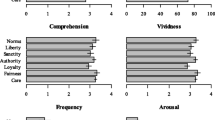Abstract
Ryle’s distinction between knowing that and knowing how has recently been challenged. The paper first briefly defends the distinction and then proceeds to address the question of classifying moral knowledge. Moral knowledge is special in that it is practical, that is, it is essentially a motive. Hence the way we understand moral knowledge crucially depends on the way we understand motivation. The Humean theory of motivation is wrong in saying that reason cannot be a motive, but right in saying that desire is essential for motivating us. The right response to the Humean theory of motivation is to see that moral knowledge is desire-related rationality or thought-related desire. Moral knowledge is neither knowing that nor knowing how but rather a third species of knowledge which we may call “knowing to do.” Knowing to do is to be rationally disposed to do the right thing. This understanding of moral knowledge is exactly what we can learn from Aristotle’s ethics.
Similar content being viewed by others
References
Aristotle (1925). The Nicomachean Ethics of Aristotle, trans. by David Ross. Oxford: Oxford University Press
Aristotle (2000). Nicomachean Ethics, ed. by R. Crisp. Cambridge: Cambridge University Press
Davidson, D. (1971). “How is Weakness of Will Possible?” Reprinted in his Essays on Actions and Events (1980). Oxford: Clarendon Press
Hume, D. (2000). A Treatise of Human Nature. Oxford: Oxford University Press
Koethe, J. (2002). “Stanley and Williamson on Knowing How.” Journal of Philosophy, 325–328
Korsgaard, C. (1986). “Skepticism about Practical Reason.” Journal of Philosophy, 83(1): 5–25
McDowell, J. (1979). “Virtue and Reason,” reprinted in McDowell 1998
McDowell, J. (1996). “Two Sorts of Naturalism,” reprinted in McDowell 1998
McDowell, J. (1998). Mind, Value, & Reality. Cambridge: Harvard University Press
McDowell, J. (1998a). “Some Issues in Aristotle’s Moral Psychology,” reprinted in McDowell 1998
Noë, A. (2005). “Against Intellectualism.” Analysis, 65(4): 278–290
Plato (1997). “Protagoras,” in his Complete Works, ed. by J. Cooper. Indianapolis: Hackett Publishing Company
Ryle, G. (1949). The Concept of Mind. London: Hutchinson
Smith, M. (1989). “Dispositional Theories of Value.” Proceedings of the Aristotelian Society, Supp (63): 89–111
Snowdon, P. (2004). “Knowing How and Knowing That.” Proceedings of the Aristotelian Society: 1–29
Stanley, J., and Williamson, T. (2001). “Knowing How.” Journal of Philosophy: 411–444
Tang Refeng (2005). “Aristotle Lunlixue zhong de Dexing yu Shijian Zhihui” 亚里士多德伦理学中的德性与实践智慧 (“Virtue and Practical Wisdom in Aristotle’s Ethics”). Zhexue Yanjiu, 5: 70–79
Author information
Authors and Affiliations
Corresponding author
Additional information
An erratum to this article can be found at http://dx.doi.org/10.1007/s11466-011-0161-3
About this article
Cite this article
Tang, R. Knowing that, knowing how, and knowing to do. Front. Philos. China 6, 426–442 (2011). https://doi.org/10.1007/s11466-011-0148-0
Received:
Published:
Issue Date:
DOI: https://doi.org/10.1007/s11466-011-0148-0



